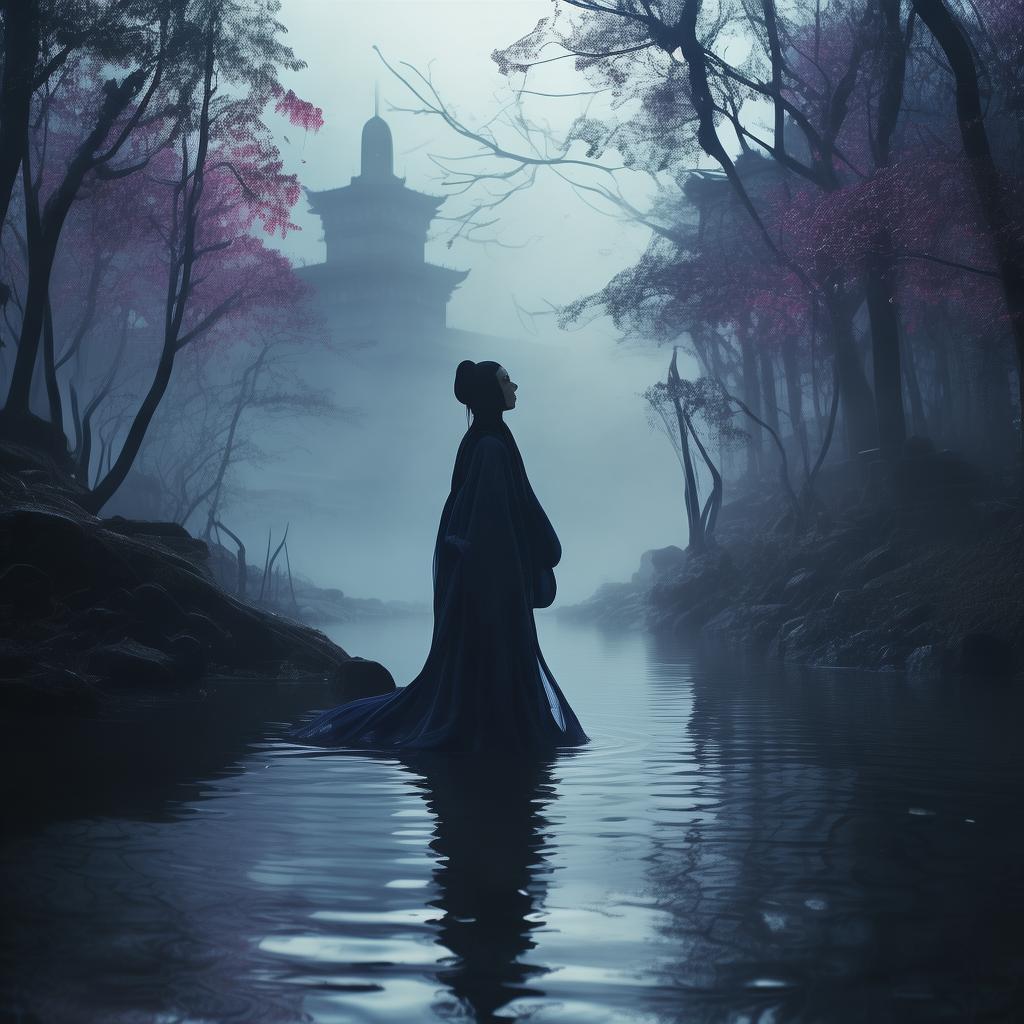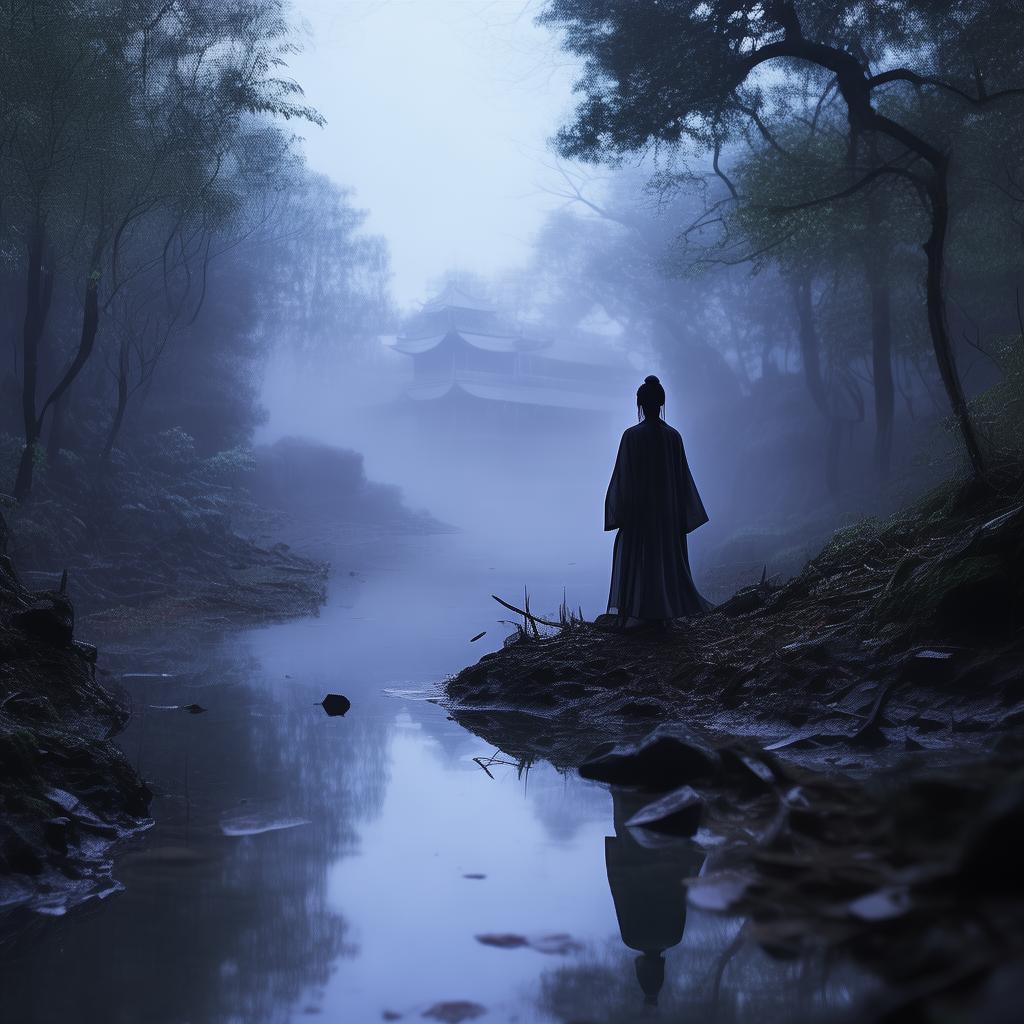The Liao Zhai's Ghostly Symphony: Wang Zhiwen's Composition for the Dead
In the ancient town of Liao, nestled between the misty mountains and the whispering rivers, there lived a renowned composer named Wang Zhiwen. His music was known to stir the soul, to weave emotions into the fabric of the air, and to bring forth visions that transcended the ordinary. But on one fateful night, his compositions would take on a life of their own, and the line between the living and the dead would blur.
The story begins with Wang Zhiwen, a man in his prime, hunched over his desk, his fingers dancing across the keys of his piano. He was working on a composition, one that he felt was different from any he had ever written before. It was to be called "The Composition for the Dead," a piece meant to honor the departed and to bring solace to the bereaved.
As the nights grew longer and the days shorter, Wang found himself increasingly drawn to the music that seemed to play in his mind, a melody that was both haunting and beautiful. He would hear it in his dreams, and as the days passed, the music became more insistent, more real.
One evening, as he sat at his piano, the melody began to take form. His fingers moved of their own volition, and the music that flowed from the instrument was unlike anything he had ever composed. It was as if the very air was charged with a strange energy, and as he played, the room seemed to vibrate with a life of its own.
That night, as Wang Zhiwen finished his composition, he felt a strange sense of foreboding. The music had a weight to it, as if it carried the weight of the souls it was meant to honor. He played the piece for a few moments, then stopped, his breath catching in his throat.
The next morning, as Wang walked through the town, he heard whispers. They were faint at first, like the distant call of a bird, but they grew louder as he continued his walk. The whispers seemed to be following him, calling out his name. He turned to see no one, but the whispers continued.
He arrived at his home, and as he entered, he heard the sound of a piano. The music was the same as the night before, and it was coming from his study. Curiosity piqued, he followed the sound, and as he pushed open the door, he saw a sight that chilled him to the bone.
Before him was a figure, draped in white, seated at his piano. The figure's eyes were closed, and their hands moved with the same grace and precision as Wang's. The music was exquisite, a symphony of the dead, and it seemed to fill the room with a spectral presence.

Wang approached the figure, his heart pounding in his chest. "Who are you?" he whispered. The figure opened their eyes, and for a moment, Wang thought he saw a ghostly smile.
"I am the music you have composed," the figure replied. "I am the dead, brought to life by your art. Your composition has touched us, and we come to honor you."
As the music reached its crescendo, the room seemed to shatter. The walls trembled, and the air grew thick with the presence of the departed. Wang felt himself being pulled into the music, into the world of the dead.
When the music finally stopped, the figure stood up and walked towards him. "We thank you, Wang Zhiwen," they said. "You have given us a voice, a way to be heard. We will never forget you."
And with that, the figure vanished, leaving behind a silence that was deafening. Wang Zhiwen sat down at his piano, his fingers trembling. He played the piece one more time, and as he did, he felt a sense of peace wash over him.
From that day forward, Wang Zhiwen's compositions took on a new life. They were no longer just music, but a bridge between the living and the dead. And every time he played "The Composition for the Dead," he would remember the spectral figure who had thanked him, and the profound connection he had made with the afterlife.
The town of Liao became a place of pilgrimage for those seeking solace in the music of the departed. And Wang Zhiwen, the composer who had brought the dead to life, became a legend, his music echoing through the ages, a testament to the power of art and the enduring bond between the living and the dead.
The story of Wang Zhiwen's haunting encounter with the afterlife would be passed down through generations, a chilling tale of the supernatural and the power of music to transcend the boundaries of life and death.
✨ Original Statement ✨
All articles published on this website (including but not limited to text, images, videos, and other content) are original or authorized for reposting and are protected by relevant laws. Without the explicit written permission of this website, no individual or organization may copy, modify, repost, or use the content for commercial purposes.
If you need to quote or cooperate, please contact this site for authorization. We reserve the right to pursue legal responsibility for any unauthorized use.
Hereby declared.









